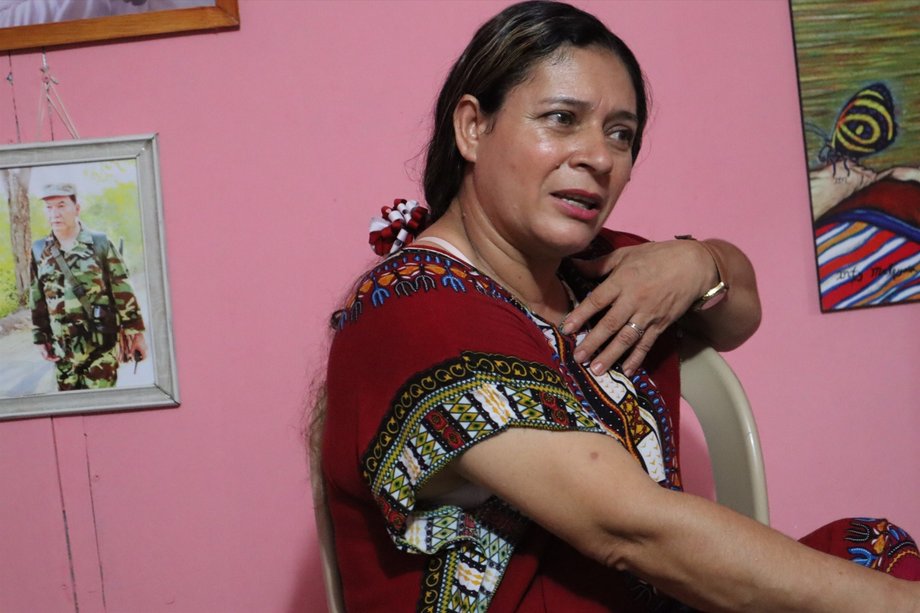When we think of armed non-state groups in conflict regions, we associate them mainly with male combatants. However, around 30-40 percent of the members of these groups are women. In a project implemented by the Berghof Foundation, former female members of armed groups capture their experiences from the period during and after conflicts in Colombia and Uganda cinematically.
Little is known about womens’ roles as survivors and combatants in conflicts, and their perspectives and needs are often not considered in peace processes. A better understanding of the diverse experiences and potentials of former combatants is highly relevant for reconstruction and political processes in post-conflict societies. Studies have proven this several times.
The project "I Have to Speak" Extended – Expanding Women's Agency in War and Peace through Testimony, Dialogue and Role-Modelling" documents the various challenges and opportunities faced by female members of non-state armed groups. From 2021 to 2023, the project will be implemented by the Berghof Foundation and financed by the GIZ sector project "Promoting gender equality" on behalf of BMZ.
An intimate insight into conflict constellations
The project is based on a participatory research approach that uses the powerful and intimate method of self-directed filmmaking to interview former female combatants from non-state armed groups. Together with ex-combatants, Berghof produces video material, reflects on the knowledge gained and analyzes motives and experiences. In some contexts, Berghof accompanies the ex-combatants throughout the process - before, during and after the armed conflict.
In a previously funded project, Berghof already interviewed demobilized groups from Indonesia, the Philippines, Nepal and Burundi. The implementation of projects in Colombia and Uganda now strengthens the understanding of the diverse experiences of women and ex-combatants in (post) conflicts. In addition, the often-marginalized voices can be more strongly included in gender-sensitive peacebuilding.
Not just a contribution to the peace process
The participatory videos with ex-combatants can also be suitable as a basis for dialogue formats and stimulate reflection and discussion, first within a group and then in exchange with other groups. The video clips focus on understanding between generations, past and present conflict dynamics and the exploration of gender roles. Within the framework of feminist development policy, transformative and participatory approaches, such as dialogue formats, help to identify and overcome discriminatory social norms and beliefs and to strengthen the participation of marginalised groups.
In addition to the contribution to feminist development policy, the project contributes to the implementation of the Women, Peace and Security Agenda. In addition to protection against gender-based and sexualised violence in situations of (post-)conflict, flight and fragility, the Agenda calls for gender-responsive and gender-transformative crisis prevention, conflict resolution and peacebuilding. The findings from the Berghof's work on female ex-combatants underscore the need for inclusive peacebuilding and the inclusion of the concerns and perspectives of marginalized groups.
The project uses various formats, including the publication of policy briefs and presentations at conferences. The current policy brief can be found here. More information about the project can be found here.
Findings from the previous research project were recorded in a scientific article in the International Feminist Journal of Politics as well as in a booklet and the short film "I Have to Speak" – Voices of Female Ex-Combatants.
Text: Noemi Weckbecker
